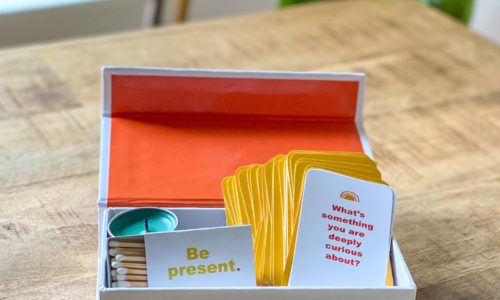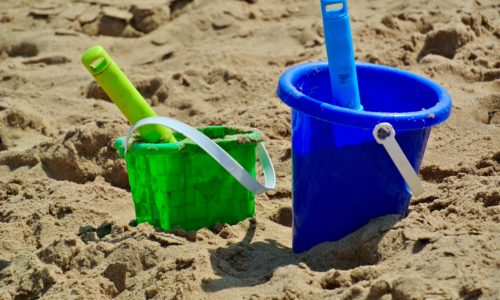My friend and fellow Acton founder, Lauren Quinn, wrote the following article. I believe it is an important reminder for parents today. Enjoy!
Harnessing the Heroic in Self-Directed Learning – By Lauren Quinn, M.Ed.
“A normal person compares themselves to others. A hero compares themselves to who they were yesterday.” – Owen, age 9
We call our learners heroes at The Village School. In fact, at every one of our 200+ affiliate schools across the globe, their learners are called heroes as well. This change in vernacular is intentional as it represents one of our core beliefs about young people. They are not empty vessels waiting to be filled or mounds of clay waiting to be shaped and molded into a predetermined form. They are active participants, co-creators, wise and capable beyond the limits and cages the world has constructed for them. Once you come to see what a flourishing child looks like, the word “student” simply will not do. Our learners are called heroes because they are heroes.
For the more pragmatic among us, calling a child a hero can feel a little disingenuous, or indulgent even. As if we’re using the term as a special compliment or accolade, in order to boost their self-esteem or sensitive ego. But keep in mind, we’re not calling young people kings and queens, we’re calling them heroes. And we’re not doing so to feed their young egos- in fact, quite the opposite.
As anyone who’s familiar with the hero’s journey knows, (think Luke Skywalker or Moana), the journey is both outward and inward. While the outward world often changes along the way, it does so in partnership with the changes of the inner world of the hero- of the changes in their character, their beliefs, their view of the world, their ego. The real treasure is found in this higher-level view of the world and their place in it. Now, the hero can start a new adventure, face a new challenge, and establish new relationships with this newfound wisdom. The cycle repeats itself, showing that we never really arrive, but if we keep showing up, we do get closer to that truest, most authentic version of ourselves, increasing the chances that we will contribute to the world in a meaningful, authentic, and purposeful way.
As a long-time educator, I was skeptical at first. Do we really need to call children heroes to make learning fun and interesting? My answer- well no, we don’t, not if this is our goal. Within a traditional school model, there are many ways to engage learners in the learning process.
But, what if our goal is not engagement? What if our goal is empowerment and a desire to tap into the unique passions, talents and interests of each child? In this environment, learning is unleashed and young people are co-creators, adults are co-learners, and they come together to support each other’s goals and dreams. Mastery replaces mediocre level competence, the ability to do real things replaces the ability to simply name and know things, and a deep sense of agency and desire to improve replaces the need to please or compare ourselves to others.
The Village School is a part of the Acton Academy network of learner-driven communities and because of this, empowerment is always our goal. In the absence of coercive pedagogy, the right narrative is essential in guiding young people along the path of self-directed learning, towards the version of themselves that says, “I want to get better”, and thus confidently sets out to do so.
The quote at the beginning was from my oldest son. He spent three uneventful years in a traditional classroom until I decided the dimming light in his eyes was event enough to pull him out of school and start my own. Two years later, he is unrecognizable from that child I saw then. Alive with the light of learning, I find his poetry and song lyrics scattered around the house, his newest inventions taking up residence in the garage, and I hear his “stop me in my tracks” revelations and musings on life whenever he cares to share- which is frequently. He is the hero in his own story, and the same is true for my younger son and the two dozen other young learners at The Village School who’ve embraced the adventure of self-directed learning. They have allowed me to learn alongside them, proving to me every day just how capable and remarkable young people are. And yet, while I’ve always known this, nothing has made this clearer than watching each of them find their footing and continue on, bravely, in the midst of a world turned upside down. They miss each other, we all do- but their adventures in learning have continued.
It’s true- our learners have many advantages, including the experience of a blended learning model which made the shift to remote learning fairly smooth for our elementary learners. While our youngest learners, in our Montessori-inspired studio, are well- versed in setting their own goals and working independently. But after seeing our learners in action these past two months, I am convinced that they have been successful, not because of our use of technology or our Montessori methods, but because of a narrative that has enabled them to drive their own learning, particularly when things are difficult.
As a network, Acton has been near evangelical about the role of the hero’s journey in our learning design. As a new owner, three years ago, just starting out, with no actual students yet beyond my own two children, I didn’t understand it. The self-paced, project-based learning design was enough to set my heart aflutter after a decade of working under the constraints of a standardized curriculum and relentless bureaucratic red tape. After visiting Acton Academy in Austin to see their learning model in action, I watched in awe as young people between the ages of six and sixteen took complete ownership and responsibility for their learning- with little to zero adult intervention. They taught themselves, collaborated with peers, cleaned their learning space, and kept track of the time and daily schedule. Most significantly, their eyes were alive with the light of learning. At the time, I attributed what I was seeing to the design elements- the multi-age environment, the exciting quest-like projects, the balance of both intrinsic and extrinsic rewards, as the secret sauce that kept everyone humming along.
But some things can only be learned through experience. As we round out our second year, in the middle of a global pandemic that’s forced us out of our school building and into our homes, I can reflect on that earlier, skeptical version of myself that had yet to launch a school, and think- you had no idea. The Hero’s Journey is the secret sauce.
The narrative is everything. When young people view themselves as the heroes in their own stories, magic happens. This is what it looks like: Older learners transitioning from traditional schools hanging up their hats as passive recipients of knowledge and coming alive with the curiosity and creativity that had been buried deep within. Younger learners hitting their stride in an environment of freedom within boundaries as they are given time and space to go at their own pace to meet their own learning goals. It looks like a quiet, anxious child finding their voice. It looks like an intelligent, frustrated, young person finding relief and joy in learning now that they can follow their own interests. It looks like a tireless, active child learning how to self-soothe in an environment that allows freedom of movement and the tools to self-regulate. It looks like a timid, risk-averse child running towards the next challenge, falling down and getting back up again so many times that you can’t even believe you once described them as timid or risk-averse. And the starting point for each of these learners, the reason that they keep showing up, eager to learn, discover new things and “get better” at something, is because they are heroes and that’s what heroes do. It’s not because someone is calling them a hero to make them feel good- it’s because they’ve harnessed the heroic inside themselves.
A learner-driven community, like all schools, is no utopia and the road of self-directed learning is a bumpy one. In the Acton model, this is all part of the adventure. A hero’s journey is not complete without its fair share of trials and obstacles to overcome. If you are a hero, mistakes will be made and conflict is inevitable. You might miss a deadline, someone might rip your paper, you might have a really hard time remembering things or staying organized, or you might struggle with self-doubt from time to time. Loss and disappointment may have found its way to you. It’s true for you and the person learning next to you. It’s true for the guide who’s mentoring you on your learning journey. It’s true for your parents, and their parents, your neighbors, and every great character in your favorite movies and books. The hero’s journey is the quintessential human journey, for those who are open and willing to learn from it. It’s life- messy, and heart-wrenching, beautiful and breathtaking. The only thing we can control is how we respond to it- and yes, the right narrative helps.
We make decisions every day based on the story we’re telling ourselves. In your story, are you a passive consumer or an active agent? Are you a victim or a hero? Your answer depends on the predominant narrative you’ve adopted and determines how you choose to engage with the world. Our children do the same, and if there’s one thing I know for sure, it’s that they want nothing more than to be active agents of their own lives and to have a road map for how to respond to life’s uncertainties, triumphs, and everything in between. They don’t want to be rescued- they just want to be given the tools to rescue themselves.
The hero’s journey doesn’t happen in isolation. It happens in community, in relationship with others. We become heroes alongside mentors and fellow travelers who are on the journey with us. This is the role of our guides, peers, community members, and parents at The Village School. Because yes, it takes a village. These people hold up mirrors for us, affirm our efforts, hold us accountable, and gift us with their honesty when they know we can do better. In turn, we do the same for them. We become stronger when we’re all in the muck together. We experience more joy when we have people to celebrate with. We are more motivated when we know that our efforts serve a purpose larger than ourselves. The hero’s journey is a deeply personal journey but it’s not a solitary adventure-just as self-directed learning is about the self, but is incomplete without the others who support and challenge us. The community is everything.
So as our community shifted to remote learning, our learners have continued carrying on Socratic discussions over Zoom, meeting with their running partners and guides to talk about their goals, and sharing their talents and budding interests virtually. The energy level isn’t always the same and motivation often fluctuates, (just as it does in the studios), but they have continued learning, growing, and doing because that’s what heroes do, even, and most especially, when things are hard. Whether they are in the studios at school, or in their bedrooms at home, they have a road map that travels with them wherever they go, that helps them see themselves as active agents in their lives, even in the face of a global pandemic.
As one of our upper elementary learners said so eloquently to a room full of parents and peers at our annual Heroes Celebration last year:
“It may seem like the end of the world at the time, but when you get through it, you can look back at the view and see what it really was all for. Because after all it’s not as hard as you think, especially when you have friends with you on the journey.“
While she’s referencing her ability to overcome her fear of public speaking, I can only hope the practice she’s had in overcoming hard things at school, as the hero in her own story, is helping her right now, at this moment in time.
Sometimes I think about our learners at The Village School, as an extended cast of the characters in The Incredibles. I picture them walking towards some daunting obstacle, side by side, each one with their own special super power. Except, their superpowers are actually human qualities- characteristics of generosity, creativity, compassion, honesty, grit, courage, humor, curiosity and patience. They are so alive with these qualities that you can’t help but stop and stand in awe. And you know, that whatever obstacle awaits, it doesn’t stand a chance against the collective power of these heroes in your midst- heroes who are just humans, fully alive.
What would the world be like if we were to harness the heroic in each of us?


